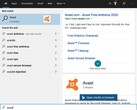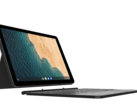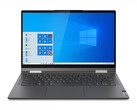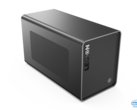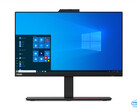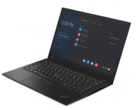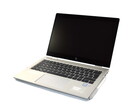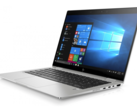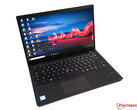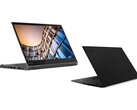HP already offers the third generation of its integrated privacy filter SureView. The first two attempts still had massive problems with the picture quality (low-frequency PWM, very low contrast ratio), but the privacy filter was and is effective. Lenovo now enters the competition and offers some of its 14-inch ThinkPads with the optional Privacy Guard screen, which is supposed to limit the viewing angles by the push of a button.
We had the chance to test the ePrivacy screen in the latest ThinkPad X1 Carbon 2019. The first thing we noticed immediately is that Lenovo obviously favored the picture quality, because neither the maximum brightness, the color accuracy, nor the contrast ratio are affected when you use the ePrivacy mode. However, the privacy filter is just not as effective as we would have liked. The laptop automatically reduces its brightness to around 90 Nits when you activate the ePrivacy mode. This brightness is only sufficient for darker environments and the privacy filter is okay at this luminance, but could still be more effective.
You can increase the brightness manually, but this will reduce the effect of the privacy filter noticeably and there is basically no effect at the maximum brightness of around 400 Nits. We recommend our in-depth review for more detailed measurements and impressions. It is not a mistake to select the ePrivacy panel thanks to the good picture quality, but we do not think the additional price of almost $200 over the default 1080p screen (400 nits) is really justified. We also recorded a video, which shows the effect of the ePrivacy filter.



